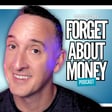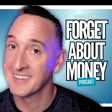
🧓 Enough Money to Retire and Enough Money to Die, Law Trivia, and Deep Fried Tofurkey! 🦃
📊 In this episode, we explore the dual definitions of "enough money" and discuss the practical and emotional shifts that come after reaching financial independence.
❓We share our thoughts about strategies for transitioning from wealth accumulation to life accumulation, managing legacy goals, and even share some laughs with a law trivia segment and deep-fried tofurkey anecdotes!
In this episode, we discuss:
1️⃣ Enough Money to Retire: How to calculate financial independence using the 25x rule and 4% withdrawal rate, and what it means to truly walk away from work.
2️⃣ Enough Money to Die: The importance of legacy planning, financial projections for end-of-life goals, and why dying with zero might not be the answer for everyone.
3️⃣ Mindset Shifts After FI: The challenge of transitioning from saving to spending and aligning money with your values in retirement.
4️⃣ Spending in Retirement: Practical steps to intentionally spend money on experiences, relationships, and what truly brings joy.
5️⃣ Memory Dividends in FI: How creating lasting experiences with loved ones offers returns far greater than money can.
🔗 David’s Links:
🏖️ How to Spend Money Guilt-Free in Retirement! | Mark Trautman & Kevin Sebesta
📘 The Top Five Regrets of Dying book
🍏 Forget About Money on Apple Podcast
🎧 Forget About Money on Spotify
#financialfreedom #retirementplanning #financialindependence #moneymindset #legacyplanning
🎧 Listen & Subscribe: Don’t miss out on this engaging discussion about redefining “enough” in financial independence and legacy planning. Hit subscribe and the bell icon 🔔 to stay updated on future episodes!
📜 Disclaimer: This episode is for informational and entertainment purposes only. It is not financial advice. For tailored advice, consult a certified financial planner or advisor.

